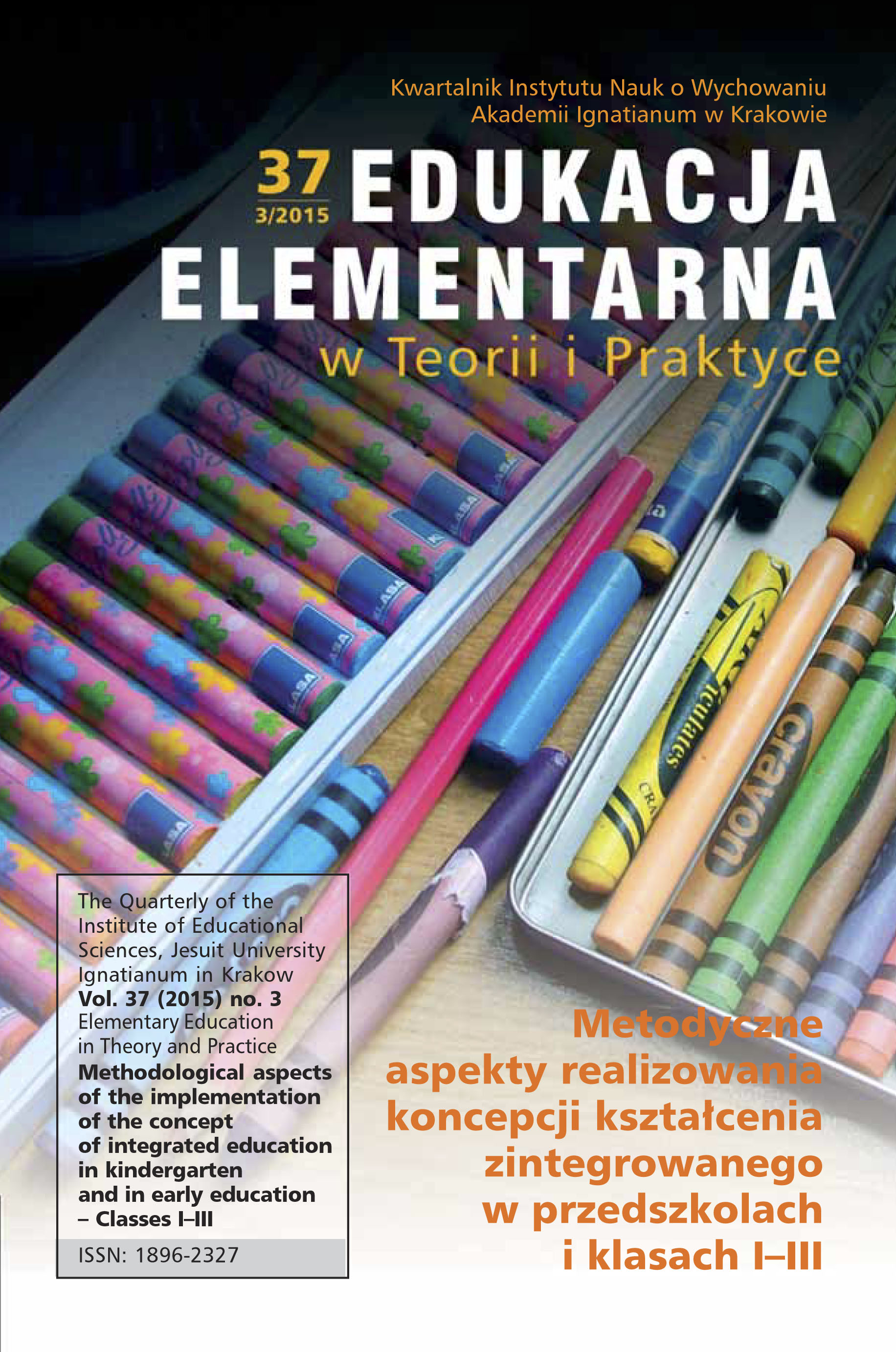Realizacja idei integracji metodą projektów w klasach I–III
Implementing an Integrated Conception of Education in Classes I–III by Means of the Project Method
Author(s): Martyna SzczotkaSubject(s): Social Sciences, Education
Published by: Uniwersytet Ignatianum w Krakowie
Keywords: early education; integrated education; teaching methods; stimulating methods; project approach; teaching according to the project method
Summary/Abstract: Educational activities have always been accompanied by a tendency to look to achieve optimal results. New and better teaching methods have been searched for, that would not only accelerate the learning process itself, but also make it more attractive and efficient. In present-day earlyschool education, we are dealing with a new type of pupil, using a set of learning methods and techniques that are totally different from those used previously. In this scenario, traditional learning methods may come to seem inadequate from the point of view of ensuring the attractiveness and efficiency of the educational process. From the very beginning, the implementation of an integrated conception of education in the context of reforming early-school education has raised fears that such reforms could bring about a deterioration into mere routines. The materials prepared for teachers in the form of many didactic studies, programs and methodical guidebooks, for the most part contain, at the level of their ethodological planning, just one way of implementing this idea: namely, so-called methodical cycles. Presenting in principle just one form of implementation of such integration naturally leads to uniformity and descends into mere routine – at least where the implementation of such an educationally important idea is concerned. If we are looking for interesting solutions for early-school education, then it is surely worth noting the interesting and valuable form of integrated work known as the project method. This refers to an active methodology based on the exploratory activities of pupils, whose main goal is to bring it about that the knowledge entertained by pupils is of an integrated nature, making it coherent and systematic, and thus dynamic, flexible, and maximally available for the individual – both for purposes of reflection and in the form of a readiness to act in various situations. The basic value of this method just consists in teaching how to act, manage one’s own work, and make use of one’s own experience in various teaching situations. At the same time, it builds up skills connected with communication, negotiation, decision-making, and coping with atypical situations, releasing leadership potential and instilling selfconfidence – something that in turn allows one to function actively in society, planning one’s life in a fully conscious way.
Journal: Edukacja Elementarna w Teorii i Praktyce
- Issue Year: 10/2015
- Issue No: 3 (37)
- Page Range: 57-70
- Page Count: 14
- Language: Polish

